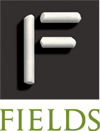14th International Conference on Runtime Verification
September 22 - September 25, 2014 Toronto, Canada
14th International Conference on
Runtime Verification
September 22 – 25, 2014
Toronto, Canada
Scope:
Runtime verification is concerned with monitoring and analysis of software and hardware system executions. Runtime verification techniques are crucial for system correctness, reliability, and robustness; they are significantly more powerful and versatile than conventional testing, and more practical than exhaustive formal verification. Runtime verification can be used prior to deployment, for testing, verification, and debugging purposes, and after deployment for ensuring reliability, safety, and security and for providing fault containment and recovery as well as online system repair. Topics of interest to the conference include:
- specification languages
- specification mining
- program instrumentation
- monitor construction techniques
- logging, recording, and replay
- fault detection, localization, containment, recovery and repair
- program steering and adaptation
- metrics and statistical information gathering
- combination of static and dynamic analyses
- program execution visualization
- monitoring techniques for safety/mission-critical systems
- monitoring distributed systems, cloud services, and big data applications
- monitoring security and privacy policies
Application areas of runtime verification include safety/mission-critical systems, enterprise and systems software, autonomous and reactive control systems, health management and diagnosis systems, and system security and privacy.
Technical Research Papers Track:
Technical research papers can be submitted in two categories: regular and short papers. Papers in both categories will be reviewed by the conference Program Committee. All accepted technical papers will appear in an LNCS volume. Submitted papers must use the LNCS style. At least one author of each accepted paper must attend RV’14 to present the paper. Papers must be submitted electronically using the EasyChair system.
A blind review process will be enforced. Authors should not reveal authorship directly or indirectly through references. For self-citations, authors can either use third-person verbs and pronouns or use the phrase “citation withheld due to the double-blind process”.
- Regular papers (up to 15 pages) should present original unpublished results. Theoretical and experimental papers as well as papers on applications of runtime verification and case studies are all welcome. A non-monetary Best Paper Award will be given. A selection of accepted regular papers will be invited to appear in a special issue of the Springer Journal on Formal Methods in System Design.
- Short papers (up to 5 pages) may present novel but not necessarily thoroughly worked out ideas, for example emerging runtime verification techniques and applications, or techniques and applications that establish relationships between runtime verification and other domains. Accepted short papers will be presented in special short talk (10 minutes) and poster sessions.
Program committee
Borzoo Bonakdarpour (McMaster University, Canada), co-chair
Scott Smolka (Stony Brook Universtiy, USA), co-chair
Gul Agha (University of Illinois at Urbana-Champaign, USA)
Thomas Ball (Microsoft Research, Redmond, USA)
Howard Barringer (The University of Manchester, UK)
Ezio Bartocci (TU Wien, Austria)
David Basin (ETH Zurich, Switzerland)
Saddek Bensalem (Verimag, France)
Ivona Brandic (TU Wien, Austria)
Marsha Chechik (University of Toronto, Canada)
Michael Clarkson (George Washington University, USA)
Laura Dillon (Michigan State University, USA)
Shlomi Dolev (Ben Gurion University, Israel)
Alastair Donaldson (Imperial College London, UK)
Dawson Engler (Stanford University, USA)
Ylies Falcone (Université Joseph Fourier, France)
Vijay Garg (University of Texas at Austin, USA)
Steve Goddard (University of Nebraska-Lincoln, USA)
Ganesh Gopalakrishnan (University of Utah, USA)
Wolfgang Grieskamp (Google, USA)
Radu Grosu (TU- Wien, Austria)
Klaus Havelund (NASA/JPL, USA)
Mats Heimdahl (University of Minnesota, USA)
Laurie Hendren (McGill University, Canada)
Gerard Holzmann (NASA/JPL, USA)
Daniel Keren (Haifa University, Israel)
Sandeep Kulkarni (Michigan State University, USA)
Marta Kwiatkowska (University of Oxford, UK)
Insup Lee (University of Pennsylvania, USA)
Axel Legay (IRISA/INRIA, France)
Martin Leucker (University of Lübeck, Germany)
Leonardo Mariani (University of Milano Bicocca, Italy)
Patrick Meredith (University of Illinois at Urbana-Champaign, USA)
David Naumann (Stevens Institute of Technology, USA)
Doron Peled (Bar Ilan University, Israel)
Mauro Pezze (University of Lugano, Switzerland)
Lee Pike (Galois Inc., USA)
Zvonimir Rakamaric (University of Utah, USA)
Grigore Rosu (University of Illinois at Urbana-Champaign, USA)
Andrey Rybalchenko (TU-Munich, Germany)
Andre Schiper (EPFL, Switzerland)
Oleg Sokolsky (University of Pennsylvania, USA)
Scott Stoller (Stony Brook University, USA)
Serdar Tasiran (Koc University, Turkey)
Michael Whalen (University of Minnesota, USA)
Lenore Zuck (University of Illinois at Chicago, USA)
Tool Demonstrations Track:
The aim of the RV 2014 tool demonstration track is to provide an opportunity for researchers and practitioners to show and to discuss the latest advances, experiences and challenges in devising and developing reliable software tools for runtime verification. Tool demonstration papers will be reviewed by the Tools Track Program Committee. All accepted tool demonstration papers will appear in the conference proceedings LNCS volume. Submitted papers must use the LNCS style. At least one author of each accepted paper must attend RV’14 to present the paper. Papers must be submitted electronically using the EasyChair system. Submissions in this track are not subject to blind review.
Tool papers should meet the following criteria:
- A tool paper should present a new tool, a new tool component or novel extensions to existing tools supporting runtime verification. Each submission should be original and not published previously in a tool paper form.
- Each submission must not exceed 8 pages in the LNCS/Springer proceeding format, including all text, references and figures. The paper must be written in English and provided in PDF format.
- Each submission must be accompanied at the time of the submission by a short screencast (between 5-10 minutes), with voice and overlay text commentary illustrating the demonstration of the tool (a link to it should be provided in the paper).
- The paper must include information on tool availability, maturity, selected experimental results and it should provide a link to a website containing the theoretical background and user guide. Furthermore, we strongly encourage authors to make their tools and benchmarks available with their submission.
- Each tool paper must include a script in an appendix (not included in the page count) describing how the demo will be conducted during the conference presentation with screenshots presenting step-by-step the tool’s capabilities, highlighting the main characteristics and the usage.
Evaluation
Each submission will be reviewed by at least four members of the tool demonstration track program committee. The evaluation criteria will include:
- the presentation quality
- the availability (possibly in a open-source format) of the software.
- the relevance for the Runtime Verification audience
- the technical soundness of the presented tool
- the originality of the underlying ideas
Tool Demonstration Committee
Ezio Bartocci, (TU-Vienna, Austria), Chair
Alastair Donaldson (Imperial College London, UK)
Dawson Engler (Stanford University, USA)
Ylies Falcone (Université Joseph Fourier, France)
Klaus Havelund (NASA/JPL, USA)
Leonardo Mariani (University of Milano Bicocca, Italy)
Michael Whalen (University of Minnesota, USA)
Important Dates:
Both research papers and tool demonstration tracks will follow the following timeline:
- Abstract deadline: April 8, 2014 April 18, 2014 (Anywhere on Earth)
- Full paper deadline: April 15, 2014 April 25, 2014 (Anywhere on Earth)
- Rebuttal phase: May 18-20, 2014
- Acceptance notification: June 10, 2014
- Camera ready submission: June 25, 2014
- Conference dates: 22-25 September, 2014
Competition on Software for Runtime Verification (CSRV-2014)
A satellite event of RV’14 is the first International Competition on Software for Runtime Verification (CRVS’14). The main aims of CSRV-2014 competition are to:
- Stimulate the development of new efficient and practical runtime verification tools and the maintenance of the already developed ones.
- Produce a benchmark suite for runtime verification tools, by sharing case studies and programs that researchers and developers can use in the future to test and to validate their prototypes.
- Discuss the metrics employed for comparing the tools.
- Provide a comparison of the tools running with different benchmarks and evaluating using different criteria.
- Enhance the visibility of presented tools among the different communities (software engineering, formal methods and automated verification, distributed computing, security, and safety-critical systems) involved in software monitoring.
CRVS’14 will follow the following time line:
- Declaration of intent: December 15, 2013
- Deadline for submission of benchmarks: April 1, 2014
- Monitoring tool submission: July 1, 2014
- Notification: August 1, 2014
For more information, visit http://rv2014.imag.fr/monitoring-competition or contact the event organizers:
- Ezio Bartocci (TU-Wien, Austria), This email address is being protected from spambots. You need JavaScript enabled to view it.
- Borzoo Bonakdarpour (McMaster University, Canada), This email address is being protected from spambots. You need JavaScript enabled to view it.
- Ylies Falcone (U. Joseph Fourier, France), This email address is being protected from spambots. You need JavaScript enabled to view it.






